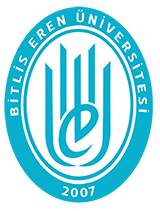Predictive Analysis Using Web Scraping for the Real Estate Market in Gaziantep
Abstract
For investors and people who want to own a property, real estate is a crucial industry.
Real estate includes land and any enduring construction, whether natural or artificial,
such as houses, residences, apartments, and commercial structures. In Turkey, it is
common to believe that owning property makes you live comfortably. Therefore,
house ownership is a common aspiration among Turkish families. However, a variety
of factors, such as a country's economic structure, inflation, world events, politics,
etc., have an impact on the real estate market. In addition, the location, neighborhood,
size, and number of rooms of a house can all affect how much it costs to live there.
Gaziantep city is considered for analysis in the proposed study. The goal of this study
is to predict which neighborhood, given a prospective buyer's financial status and
specific property attributes, someone can afford to live in. As a result, web scraping
is used to collect real estate data from the website. Once the data has been gathered,
forecasting the neighborhood of a house is done using machine learning algorithms
including decision trees, random forest, and extra trees. The results demonstrate that
all algorithms produce good results with a performance accuracy of over 80%.
However, among these algorithms, decision tree classification offers the best
performance.
Collections

DSpace@BEU by Bitlis Eren University Institutional Repository is licensed under a Creative Commons Attribution-NonCommercial-NoDerivs 4.0 Unported License..













